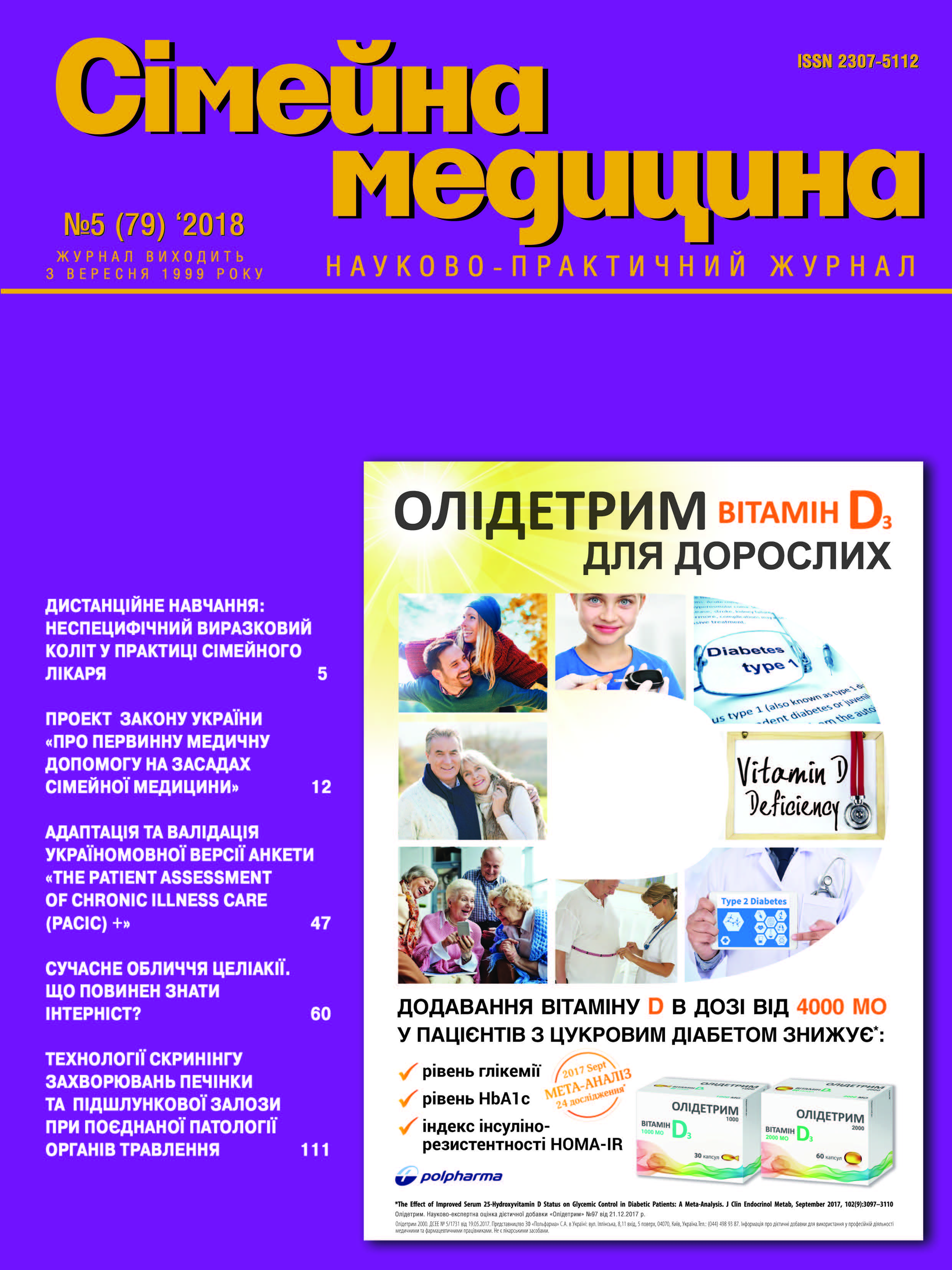Modification of the Pre-conceptional Treatment Program at the Stage of Pregnancy Planning Regarding the Psychoemotional State of Women
##plugins.themes.bootstrap3.article.main##
Abstract
The course of normal pregnancy is accompanied by significant changes in the functioning of almost all physiological systems and the tension of adaptive processes to new requirements, while the complicated period of pregnancy, is an extremely strong psycho-emotional factor.
The objective: was to determine the structure and prevalence of the types of psychological component of gestational dominant (PCGD), taking into account psycho-emotional state in women, to assess its impact on reproductive loss and complicated pregnancy as well as to develop a modified complex of pre-conceptional treatment.
Materials and methods. In order to solve the target tasks, we conducted an experimental psycho-diagnostic study and an in-depth clinical and laboratory-instrumental examination of 120 patients with a burdened reproductive history who underwent the preconceptional treatment on the basis of the Conscious Parenthood Center «Divia». The assessment of the psychological component of the gestational dominant was carried out by the method of «Pregnant woman attitude test» by I.V. Dobriakov, modified for pregnant patients, Spielberg’s and Beck’s tests were also used to assess the level of personal and reactive anxiety and signs of depression. The state of the vegetative nervous system was assessed on the basis of the main characteristics: vegetative tonus, vegetative index (SI) Kerdo), vegetative reactivity and vegetative maintenance of activity (orthostatic test). For the evaluation of the effectiveness of the proposed pre-bladder training from 120 women, where the type of PCGD was assessed, 70 patients with anxiety and depressive type of PCGD were identified, which formed two groups: the main (35 women) who received the proposed complex of psychological and medicamental correction, and the comparative group (35 patients), where the pre-conceptional treatment included traditional, in accordance with modern guidelines, – folate therapy.
Results. Experimental and psychodiagnostic research allowed to establish a high percentage of unfavorable pregnancy types of PCGD, among which the most sufficient were anxiety and depression types. Most attention on the specifics of pregnancy course deserve differences in the incidence of preterm delivery, preeclampsia resistance to treatment and the proportion of labor activity anomalies and its medicamental correction, which 2.6 times prevailed in case of anxiety and depression types of psychological components of gestational dominant.
Conclusion. The proposed pre-conceptional treatment, modified by a differentiated complex of psychological correction and a medicamental package with the inclusion of neuroprotectors and plant adapters, allowed not only to strengthen the adaptation mechanisms at the stage of pregnancy planning, but also to significantly reduce the proportion of gestational complications in the process of its monitoring.##plugins.themes.bootstrap3.article.details##

This work is licensed under a Creative Commons Attribution 4.0 International License.
Authors retain the copyright and grant the journal the first publication of original scientific articles under the Creative Commons Attribution 4.0 International License, which allows others to distribute work with acknowledgment of authorship and first publication in this journal.
References
Блох М.Е. Личностные и социально-психологические характеристики женщин репродуктивного возраста с гинекологической патологией на этапе планирования беременности [дисcертация]. СПб; 2012. 162 с.
Венцківський Б.М. Прогнозування невиношування вагітності шляхом комплексної оцінки соматотипологичного та психологічного статусу вагітної / Б.М. Венцківський, А.Л. Костюк, О.О. Бєлов // Педіатрія, акушерство та гінекологія. – 2011. – № 6. – С. 70–72.
Воробей Л.І. Сучасні аспекти діагностики та профілактики ускладнень вагітності у жінок з перинатальними втратами в анамнезі // Сімейна медицина. 2016;3(65):148–152. PDF
Гасюк М.Б., Іщук О., Шевчук Г. Використання психомалюнку для психологічної підготовки вагітної жінки до пологів (30–40 тижні вагітності). Психологія і суспільство. 2006;3:140–148. PDF
Добряков И.В. Разработка и валидизация методики определения варианта психологического компонента гестационной доминанты / И.В. Добряков // Психическое здоровье, 2011. – № 9. – С. 75–80.
Захаров Р.И., Ефанова Т.С. Влияние психоэмоционального состояния и психосоматических заболеваний на развитие психических расстройств у беременных с привычным невынашиванием // Психотерапия. – 2011. – № 10. – С. 8–9.
Флейшман А.Н. Методы оценки психоэмоционального и вегетативного статуса у беременных женщин / А.Н. Флейшман. – Новосибирск, 2012. – 222 с.
Kwon M.K., Bang K.S. Relationship of prenatal stress and depression to maternal-fetal attachment and fetal growth. J Korean Acad Nurs. 2011;41(2):276–83. https://doi.org/10.4040/jkan.2011.41.2.276





